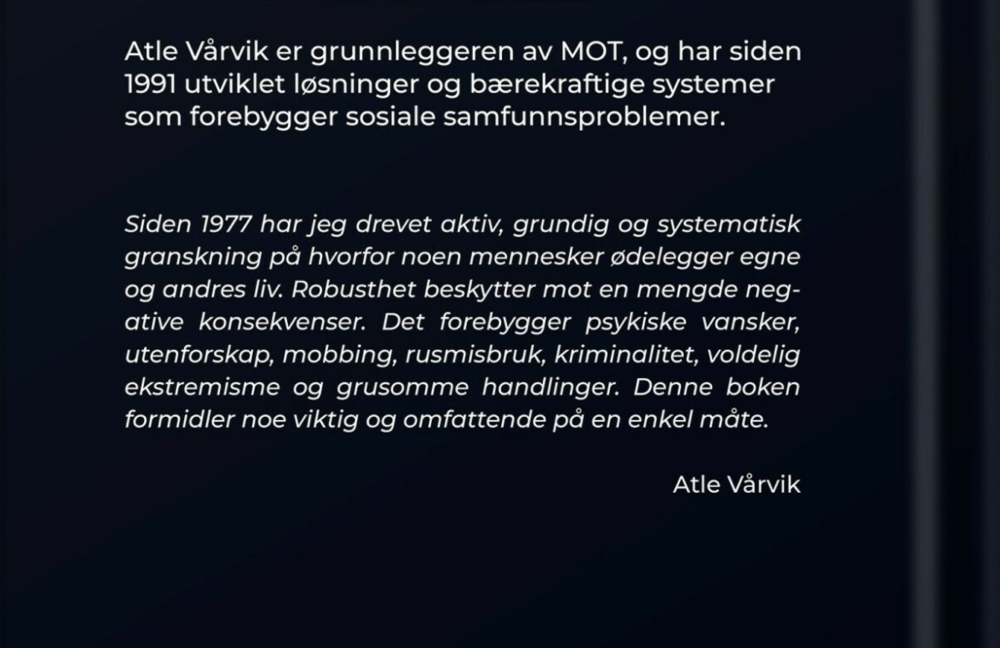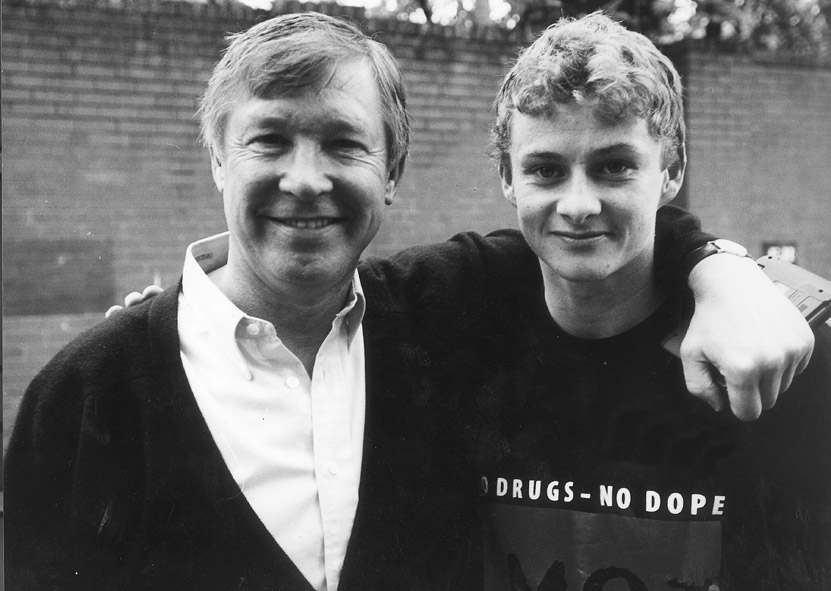In 2019, it is 25 years since the work on concretising the MOT philosophy started. The first idea and initiative to start MOT came into being after the Olympic Games in Lillehammer in 1994.
At that time, I could look back on 16 years of a burning passion for top-level athletics and for why some people become criminals who destroy their own and others’ lives. I also had the privilege of having been close to both top athletics and criminals during these 16 years.
When
we in 1994, started the work to concretise a philosophy that was going to
prevent social problems in society and help youth master life the best way
possible, we looked at the common factors why top athletes succeeded and why
some criminals managed to get off the downward path. We found many such common
factors and they became important for the development of the MOT philosophy.
Here are a few of them:
A
top athlete and a person who wants to get away from drug abuse and crime will
not succeed without goals and passion. Both groups very often said that they
succeed because they were driven by the wish to reach goals and as a
consequence, and they had to make hard priorities.
Common
for both groups’ success was that they would take responsibility and accepted
and respected themselves and others. They more
often than others turned defeat into something positive and they also focused
more than others on what they can do something about rather than on the
opposite.
What
also characterized both groups was persistence, will and courage in what they did
to succeed. They hungered for continuous development and ensured their own
focus on mastery more than the ones who did not succeed. They worked very hard
on their own awareness and they were better than most people at controlling
their thoughts, inner dialogue, concentration and focus. They visualized. They
knew that to be strong and solid in situations they had to visualize possible
scenarios. Then it would be easier to lead themselves to where they really
wanted, and they would be less ruled by the situations or the circumstances.
Both
groups very often said that their team and supporters were crucial and that
they would not have succeeded without them. Both groups were absorbing
everything that might help them develop and although many of them had the
courage to follow their own path, they at the same time eagerly followed good
recipes and advice from others.
The
above was some of the competence we held 25 years ago and which we believed
would help youth master life better and also prevent social problems in
society. This was the beginning of the MOT philosophy.



